(Based on a photocopy of a document in the archives; original hand-drawn
illustrations are included below when the scanned version was clear; in other
instances, new illustrations have been used below. This document is also
available as a PDF and a
MicroSoft Word document. )
This worksheet is meant as a simple guide to the more common
shells you will find along the shore line between the high and low water marks.
It is not meant to be a definitive guide but merely an outline to get you
started.
As with Francis Buckley’s worksheet we will record the finds
and produce a consolidated list of the species we find and publish it in the
Newsletter.
| Family: Olividae (Olives) |
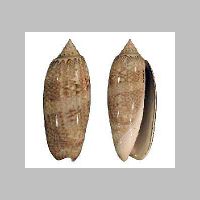 |
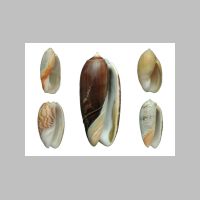 |
A smooth, glossy
shell with a large cylindrical whorl and a small conical spire at one end. They
come in many colors with usually fine purple to brown zigzag markings. Carnivorous,
they feed at night and capture their prey by enfolding it in their foot. |
| Family:
Cypraedidae (Cowries) |
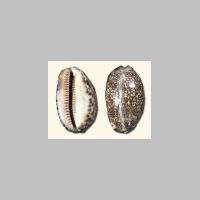 |
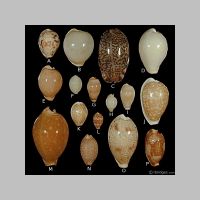 |
The Cowries are probably the most colorful of all the shells
and as such are very popular with collectors. It is impossible to describe the
range of colors. The best distinguishing feature is the long narrow opening
with serrated lips running the whole length of the underside. |
| Family: Conidae (Cone shells) |
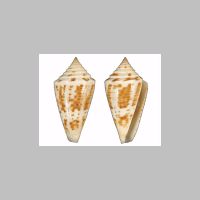 |
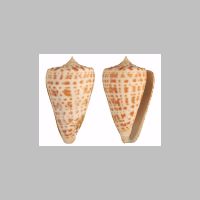 |
The Cones vie with the Cowries to be the most popular collectors’ items. Their range of patterning is extensive on varied base colors. As their
name implies they are cone shaped with a flattish top and a small pointed spire. They mainly live in the inter-tidal area in rock crevices. They are
carnivorous and have a sting with which they kill their prey. The venom in the sting of some members of the family can prove fatal to humans.
Conus Geographus is the most dangerous. The sting is located in the tongue, or proboscis, located in the ‘small’ open end.
Always pick up the shell by the big end. NEVER PUT A LIVING CONE IN YOUR POCKET. |
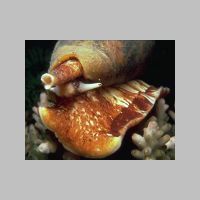 |
| Family: Fasciolariidae (Spindle shells) |
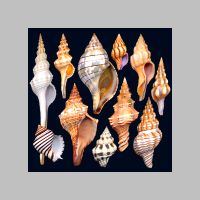 |
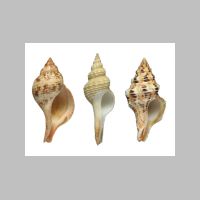 |
Graceful, long shells with high pointed spires, small apertures, and an elongated siphonal canal. Sometimes called ‘Tulip’ shells.
Fusinus Aribicus is pale cream to brown and very common to the UAE. A real find would be Fusinus Townsendi, a beautiful
pale ivory to opalescent white, which is quite rare in this area. |
| Family: Architectonicidae (Sundial shells) |
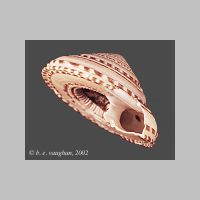 |
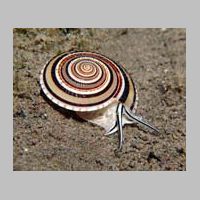 |
One has only to turn this shell upside down to see why it is called the Sundial. It is distinctively round with a conical spiral and
pronounced symmetrical markings. The deep hole in the middle of the shell is used as an incubator for the female’s eggs. |
| Family: Turritellidae (Turret shells) |
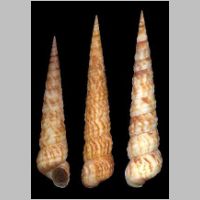 |
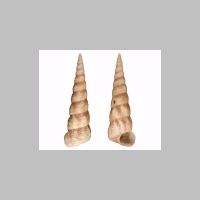 |
A slender, elongated shell with a pointed apex and 10-12 convex whorls. The aperture is round with a thin lip and no siphonal
canal. Very common in this area. Usually pink to light brown in color. |
| Family: Terebridea (Auger shells) |
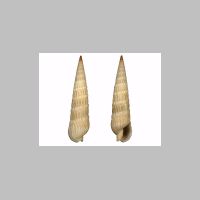 |
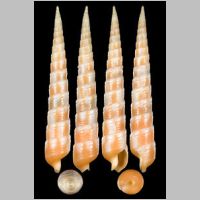 |
A slender, elongated shell not unlike the Turret shells. It
usually has more whorls than the latter, about 15. It has a small aperture and
is distinctive in having a small siphonal canal twisted to the left. There is
also a wide spiral band below each whorl (the suture) which gives the
appearance of having twice as many whorls. Color usually pinkish grey to blue-cream.
Ivory ones are rare. |
| Family: Patellidae (Limpets) |
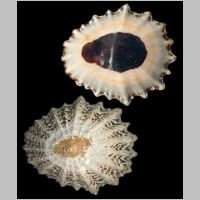 |
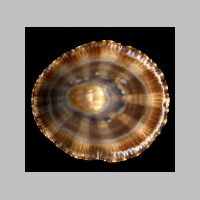 |
A low cone shaped shell, with no spire and a round to oval
base. The apex is more or less at the cone center. The outside of the shell has
many prominent radial ridges and the inside surface is very glazed. Hard to
remove from its rocks. |
| Family: Cardiidae (Cockle shells) |
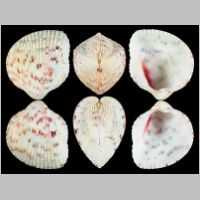 |
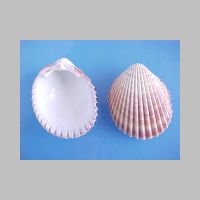 |
Pale yellow to white, a strong ‘inflated’ look with serrated
edges. Often has concentric rows of reddish-brown spots. Very common and found worldwide. |
| Family: Pectinacea (Scallops) |
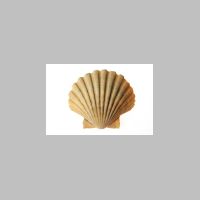 |
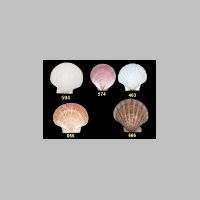 |
An almost round shell, with the hinge formed in the shape of
two unequal wings. The color varies from deep red to white and can be in
concentric bands or rays from the hinge. |
| Family: Pinnidae (Pen shells) |
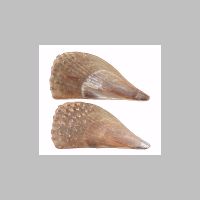 |
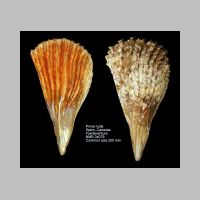 |
A rather large fan shaped shell with color ranging from
grey-brown to black. They are very fragile, and because of this it is very rare
to find a whole specimen. |
| Family: Spondylidae (Thorny oyster) |
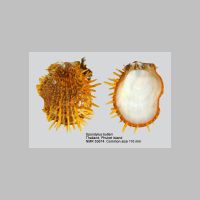 |
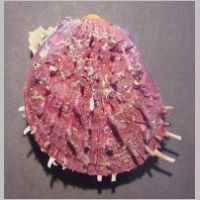 |
A large almost round shell, very thick with small wings at
the hinge. The shell has many long thin spines and ranges in color from white
with pink beaks to pale red. A prominent feature is the hinge with two
interlocking and well fitting teeth. |
| Family: Pteriidae (Pearl oysters) |
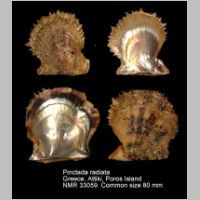 |
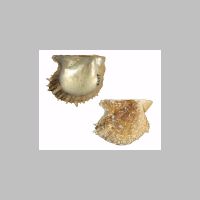 |
A very insignificant dull looking shell until it is opened.
The interior is lined with mother of pearl. |
| Family: Mactridae (Surf clams) |
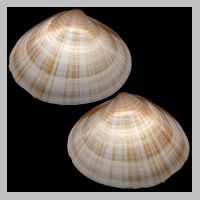 |
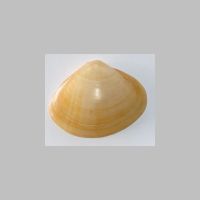 |
These are generally smooth glossy shells, oval or ‘rounded
triangle’ in shape. The markings are fine concentric growth lines with usually
radiating lines of a different color. The range of colors is quite extensive,
which makes them very attractive to collect. |


